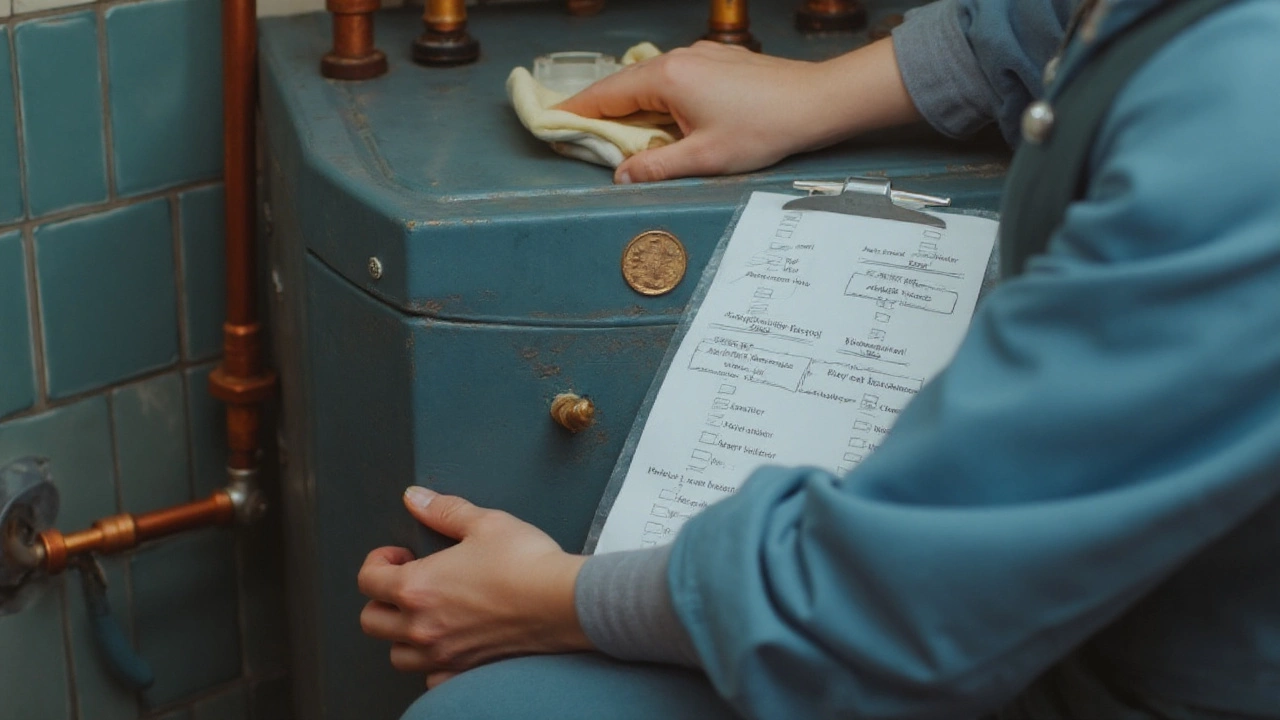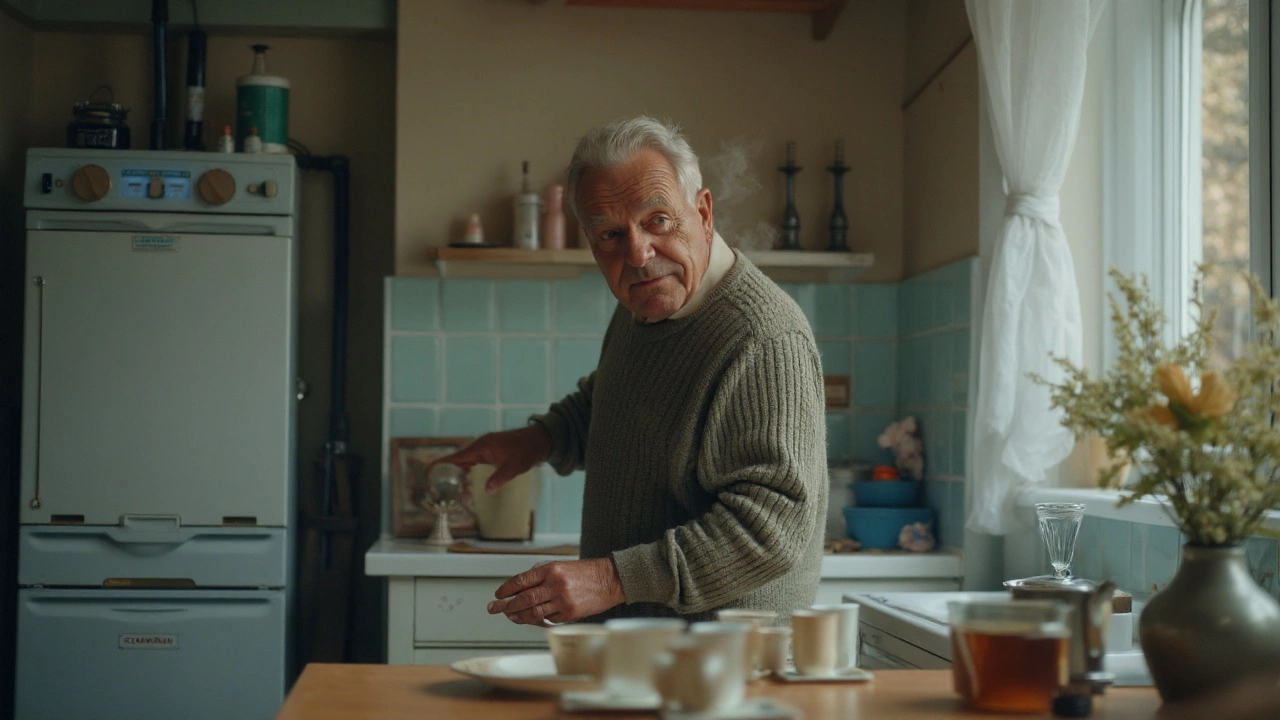Got a boiler humming away at home or work? Most of us barely notice what’s under the hood—until the day it dies and takes the hot shower with it. Boilers are the silent muscle in a home, especially when winter winds batter Wellington. Some folks only hear about their boiler when it’s grumbling or rattling late at night. Suddenly, questions hit: How many years till mine gives up? Is a new boiler always better or just another money sink? The answers aren’t as straightforward as you might wish, but stick around—there’s more to a boiler’s timeline than just a number on a label.
What Actually Determines a Boiler’s Lifespan?
Let’s get straight into what counts. How long do boilers last? On paper, the typical gas boiler in New Zealand punches out around 10 to 15 years, while some older models, especially the chunky cast iron ones, can stretch past 20. But there’s a catch: “classic” lifespan figures are taken from tightly controlled lab tests, not the wild world of Kiwi homes. Your boiler’s true life depends on way more than its birth certificate. Hard water chews through parts. Sloppy installs knock years off. If you use it hard through endless cold snaps, it’ll age faster too. Even the type—combination (combi), conventional, or system—makes a difference. Combi boilers often work overtime since they handle both heat and hot water, so they may retire a bit earlier.
One fact that throws people: just because it’s working, doesn’t mean it’s working well. Efficiency slides off year by year as limescale creeps in, seals weaken, and small leaks stay hidden. Brands touting "15-year lifespan" can only promise that if you give your boiler a bit of TLC each season. Modern boilers save heaps on gas—sometimes up to 90% efficient when new—but put off maintenance for a year or three and you could see that fall by a third. Worth knowing? Absolutely.
Local conditions in Wellington and around Aotearoa can make a difference too. High humidity, salt in the coastal air, and hard water all work behind the scenes to damage internal components. So if you live minutes from the South Coast or anywhere water has a bite, expect to swap out parts sooner, even if the main heat exchanger hangs on.
Keep in mind, installation skill also counts for plenty. You won’t see "bad install" written anywhere on the warranty form, but it cuts years off. If the system wasn’t flushed properly or the pipes are poorly insulated, your boiler’s doing double duty just to keep up. Regular pressure checks, cleaning out air vents, and catching leaks early lets you squeeze more miles out of the tank. Sure, accidents can happen—power surges, rust, even furry friends gnawing through wires. But care and use are the big ones.
Boiler Types and Which Last the Longest
Not all boilers are built the same way, so let’s break down what you’re actually dealing with. There are three main boiler types floating around modern homes: combi, conventional (or heat-only), and system boilers. Combi boilers do everything—heat water for the taps and radiators at once. They score points for space-saving if you’re short on cupboard real estate. But being “all-in-one” means they work harder, especially in a big house where the hot shower never ends. Because of this constant use, you’ll often see combis checking out a couple years earlier than standard boilers. If you baby one with annual servicing and keep water pressure stable, you can see 10–12 solid years.
Conventional boilers usually sit alongside a big, clunky hot water cylinder. They're less common these days but still knocking around older Wellington homes. Because they’re only heating water and not instantly firing up every time someone turns a tap, they can last longer—often 15 to 20 years if undisturbed. They don’t love extreme cycling (on-off) though, so regular usage is best. System boilers are sort of a mix: they heat stored hot water like a conventional model but with added built-in components, making them faster to install. Their lifespan is close to conventional types, often around 12 to 15 years with care.
Let’s talk about materials. Cast iron boilers—think giant relics from another era—are nearly indestructible, with some still kicking at 30-plus years. But old isn’t always efficient. Modern aluminium and stainless steel heat exchangers channel energy better but sacrifice longevity for savings and smaller size. If you live coastal, corrosion can be an issue, especially for aluminium models. Stainless steel holds up better under harsh water, so ask what’s inside next time you’re boiler shopping.
One less obvious bit: smart controls don’t make the boiler itself last longer, but they do help it work less by running it efficiently. Decent zoning and timers mean your boiler isn’t heating water and spaces you aren’t using. Less pointless running time equals less wear-and-tear. That’s something old systems just can’t do well.
Here’s a quick look at how long boilers typically last by type and material:
| Boiler Type | Common Material | Average Lifespan (years) |
|---|---|---|
| Combi | Aluminium, Stainless Steel | 10–12 |
| Conventional | Cast Iron, Steel | 15–20 |
| System | Stainless Steel, Aluminium | 12–15 |
| Cast Iron (old) | Cast Iron | 20–30+ |

Maintenance Moves That Seriously Boost Lifespan
If you want your boiler to outlive your favourite pair of slippers, don’t skip maintenance. Ignoring it is like driving your car for years without checking the oil—it might go, but eventually it refuses to start on a frosty Monday morning. Servicing isn’t just ticking a box for the warranty, either. Pro plumbers flush out built-up gunk and limescale, clear filters, and spot parts heading for disaster long before you feel cold water pouring from the shower.
Here’s the wild thing: most boiler problems don’t show up overnight. It’s a slow grind—minerals from hard water clogging up, pressure valves getting sticky, or seals drying and shrinking so tiny leaks form right under your nose. In New Zealand, the Ministry of Business, Innovation & Employment (MBIE) and Energy Efficiency and Conservation Authority (EECA) both recommend yearly inspections, ideally before winter hits. Technicians check for flue blockages, uneven flame, carbon monoxide leaks, and test safeties you probably never think about. They’ll also bleed air from the system and clear sediment—especially important in Wellington where water’s often hard on machinery.
Want to boost your boiler’s odds? Here’s a quick hit-list:
- Get it serviced every year. It usually costs less than fixing a big failure, and some local authorities will spot-check building compliance records.
- Install a magnetic filter to block out corrosion debris. These things are small but trap rusty bits before they ruin your pump or heat exchanger.
- Bleed your radiators before winter. Air bubbles push the pump to work harder—wasting energy and money.
- Add scale inhibitor chemicals if your home is in a hard-water area. It’s cheap insurance against clogged insides.
- Keep an eye out for weird noises or water leaks—early signs of trouble.
It’s still easy to forget. But routine care means you get fewer nasty repairs and, on average, add three to five years before you have to buy a shiny replacement. If you plan to sell your house, showing regular maintenance can even bump up your valuation because buyers know what they’re getting is solid—hard to put a price on peace of mind when the wind’s howling outside.
Warning Signs: When Is It Time To Replace?
So, when do you finally call it quits? If you’re patching up the same boiler every six months or spending big on replacement controls and sensors, it’s probably time to plan for a change. No one wants a dead boiler in July, but waiting for total failure usually means a big rush bill. Sometimes you can stretch a struggling boiler another season, but there are key signs you shouldn’t ignore.
Here’s what to watch for:
- Strange noises—clanking, knocking, or gurgling—often mean scale or debris has built up in the system.
- Spiking energy bills. As boilers age, they lose efficiency. If your gas bill jumps and usage hasn’t changed, that’s a warning.
- Frequent repairs. If you’ve needed a new pump or sensor every winter, the end is near.
- Leaks or puddles. Even small leaks inside the casing can lead to corrosion and sudden breakdowns.
- Yellow burner flame. This should always be blue. Yellow means incomplete combustion, risking carbon monoxide bumps or even poisoning.
- It can’t keep up. If the hot water gets cold halfway through a shower, or your radiators barely warm up, it may not be worth sinking more cash into repairs.
On average, most folks in Wellington replace a boiler at about 12 years old. Newer models offer better “modulation”—they adjust output automatically based on the home’s needs—so you use less gas for the same warmth. And with rebates on energy-efficient models sometimes offered by NZ Government grants or local councils, holding onto an ancient system rarely pays off in the long run.
Ahead of replacement, get a few quotes from reputable installers. Ask about their servicing policy, warranty, and, if your house is coastal, check that the boiler is rated for corrosion resistance. Don’t be afraid to ask what happens if it fails early—sometimes paying a little more up front gets you serious backup. And if you’re still not sure, a home energy audit can put numbers to what you’re missing with an old, flagging boiler versus a new high-efficiency system.

Pro Tips for Getting the Most Out of Your Boiler
You’ve read this far, so you want to max out your boiler’s lifespan—smart move. Simple daily habits keep things smooth even if you’re not a DIY-type. For one, avoid sudden jumps in thermostat settings. Going from 14°C to “full blast” kills efficiency and puts stress on the boiler’s heat exchanger. If you’re leaving home for days, drop the temp but don’t switch the system off completely during winter—that’s how pipes freeze and split. In Wellington’s wet climate, that can turn a small problem into a sodden disaster in no time.
Another little-known tip is to regularly check and top up boiler pressure, using the gauge and filling loop. If the pressure drops below what’s recommended—usually 1.0–1.5 bar for most home boilers—your system works less efficiently and risks damage. If the pressure won’t stay up, get it checked for leaks or faulty pressure relief valves. Small fixes now avoid big, costly breakdowns later.
If you’re in a flat, or rent out a place, consider adding boiler breakdown cover. For about the price of a couple of coffees per month, you get peace of mind and fast help when something goes wrong. Also, make a habit of looking at your boiler’s flame colour when you pass by—if you see any yellow or orange where there should be blue, call for help fast. That’s your carbon monoxide red flag. Keep an audible CO detector near the boiler or wherever you sleep—just in case.
Don’t ignore weird puddles, sudden drops in hot water, or loud banging—these are early calls for help. By paying attention and staying on top of maintenance, you can easily squeeze two to five extra years out of your boiler, saving a few thousand bucks before having to deal with an upgrade.
Oh—and if you’re thinking of moving, solid boiler paperwork (regular servicing, professional repairs, clean Energywise rating) can help win over nervous buyers. It’s just one more thing that keeps both you and the next person warm as you hand over the keys.

I am an expert in the services industry with a focus on appliance repair. My passion lies in understanding how things work and educating others in simple, engaging ways. This enthusiasm fuels my writing, where I delve into topics around appliance maintenance and troubleshooting. I aim to make these subjects clear and accessible to all readers.